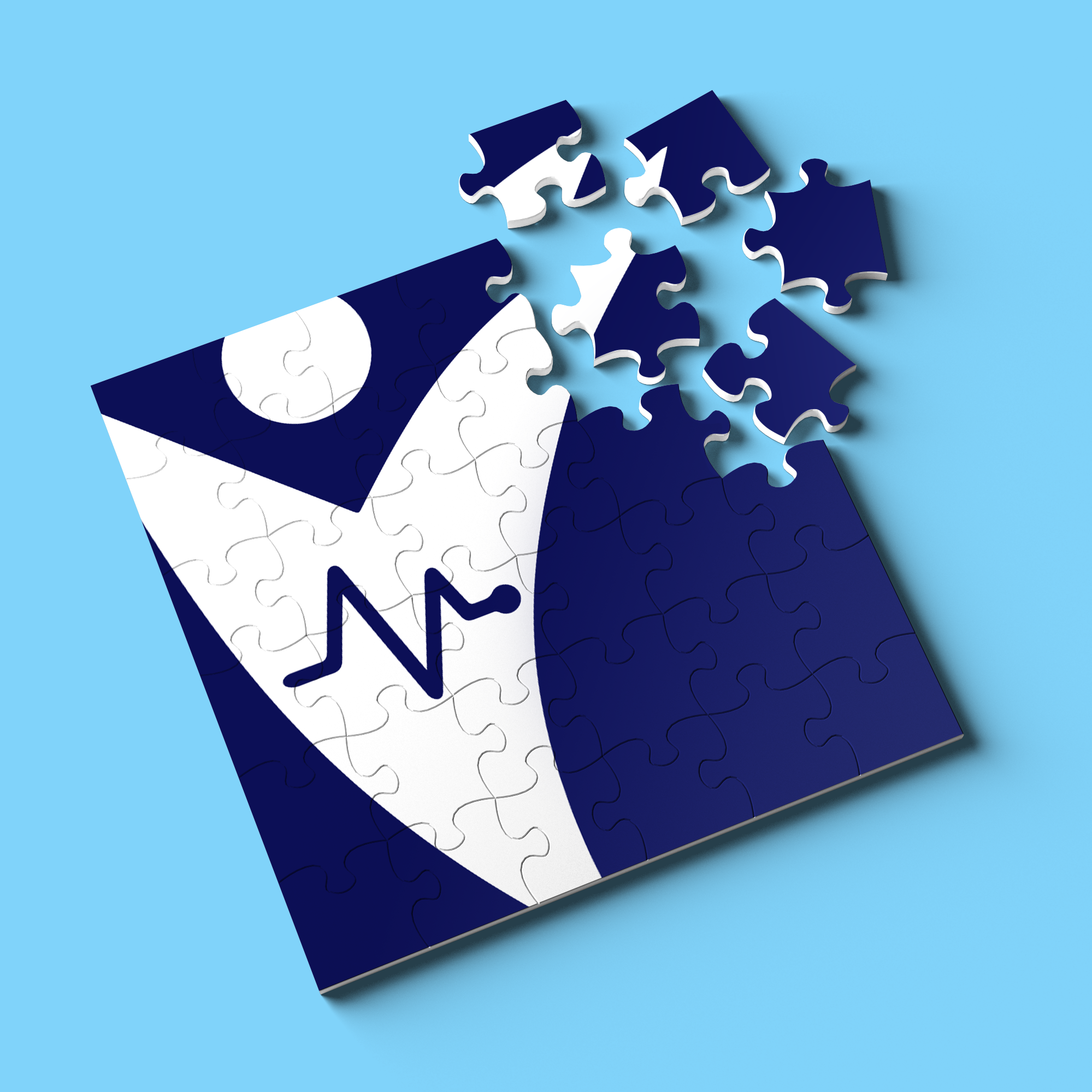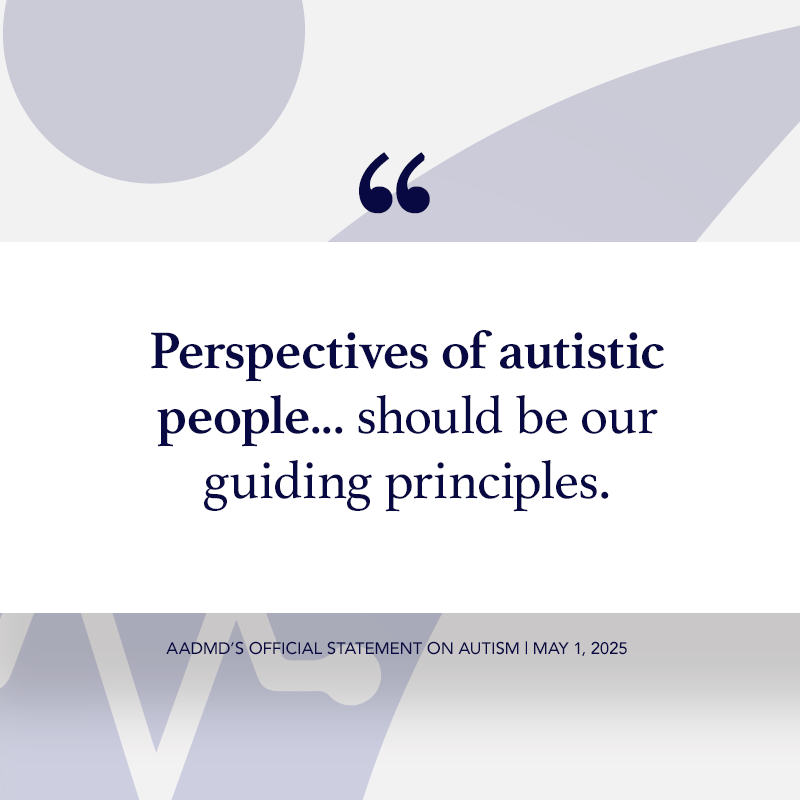AADMD’s Official Statement on Autism
May 1, 2025
Yesterday marked the final day of Autism Awareness Month, but our commitment to awareness continues year-round.
AADMD is a healthcare collective of physicians, dentists, nurses, allied health professionals, people with autism, and supporters. We believe autistic people should be treated with dignity and respect. And that means having access to optimal healthcare.
AADMD supports this ongoing journey. We advocate for improved healthcare, health outcomes, and well-being for autistic people and people with other developmental disabilities. We also encourage everyone to participate in this conversation, so no voice is silenced – especially the voices of people with disabilities.
People with autism are valuable members of society, communities, families, and organizations. Regardless of support needs, our world is better with autistic people in it. All people with autism deserve access to high quality, accessible, and affordable healthcare. AADMD strongly supports any effort to improve the health and well-being of people with autism – and we recognize the perspectives of autistic people, and their supporters should be our guiding principles.
We must reflect on how our healthcare system, research, and community services impact people with autism. Often people with autism are denied healthcare, receive poor care or have negative experiences because healthcare practitioners are ill-prepared, inexperienced or do not get properly reimbursed by insurance for their services. To improve this, we must look at the entire equation – streamlining healthcare, accessibility, as well as the public health and food environment. Within this equation, health insurance services are paramount – they make healthcare affordable for many autistic people and allow them to live in the community rather than an institution. Medicaid services should be restructured to prioritize health outcomes and value-based, quality care to reduce cost burden on the system. This would ensure people with autism do not face further barriers to community living, marriage, education, work, and pleasure.
Additionally, health research must focus on needs identified by the autistic community. More scientific research is key to better understanding genetic and environmental factors related to autism and how those factors impact their health. Studies should not only include input from people with autism, but be scientifically sound, and purposeful. Research should elevate the work of experts – those with personal experience with autism as well as those with scientific training. We must encourage open conversation and welcome opposing opinions.
To improve the healthcare experience of autistic people, our health and research professionals should be required to complete disability competency training. The AADMD has developed medical and dental curriculum for this purpose. We further propose that medical schools, dental schools, nurse practitioner programs and physician assistant programs require all students undergo mandatory disability competency training in the treatment of individuals with disabilities, including autism.
Through our collaborative forum, the AADMD advances quality care and champions advocacy efforts. We are proud to stand with the community we serve and build bridges toward meaningful, lasting solutions. The AADMD stands against stigmatization of those with autism and other forms of intellectual and developmental disabilities and we strongly support the right to receive quality care. We provide the utmost dignity and respect for our patients with autism when we provide optimal healthcare.




